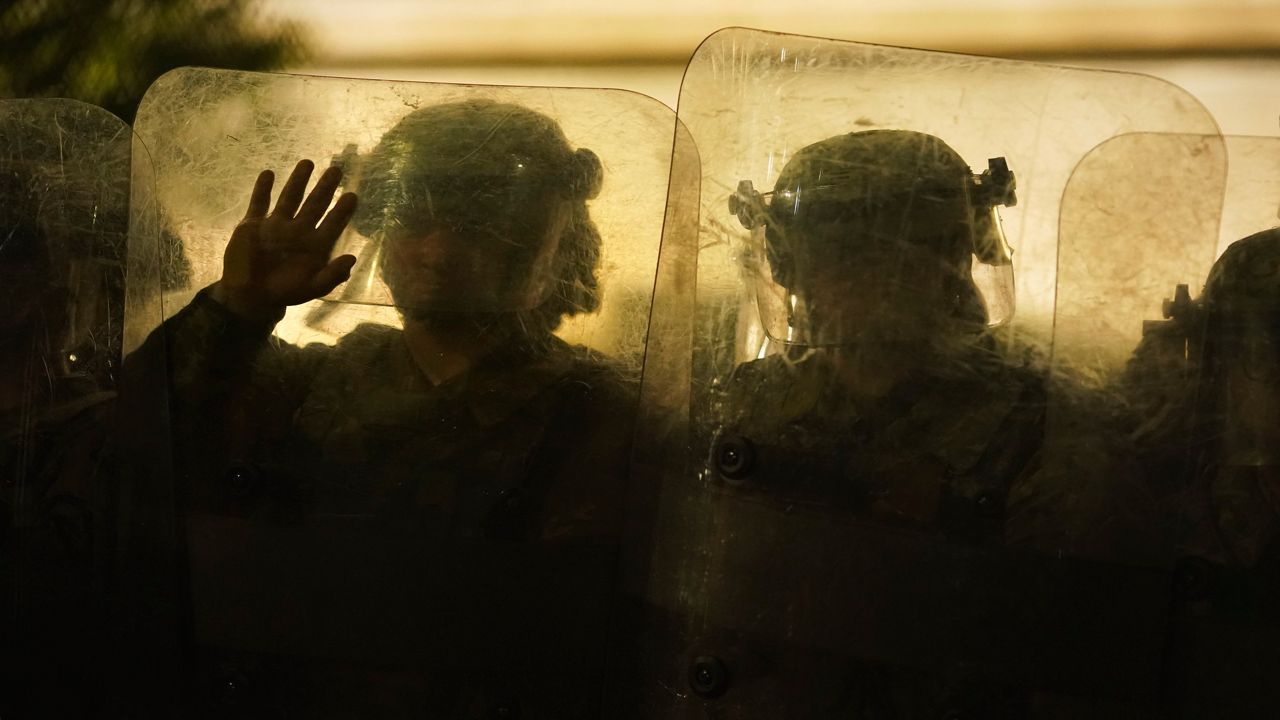RALEIGH, N.C. – The door to Alan Horwitz's store is a tangible reminder of last May's riots.
The door is heavy and takes a little effort to open. It’s solid steel, and it replaces a wooden one destroyed by looters ten months ago.
“The second night (May 31), they were able to take the plywood off because that’s all we had at the time,” Horwitz remembered. “There was no glass left.”
When protests erupted nationwide last May following George Floyd's killing by a Minneapolis police officer, many of them turned into riots the first weekend following Floyd’s death. In North Carolina, riots broke out in Charlotte, Raleigh, Fayetteville, Asheville, and Greenville. Horwitz’s jewelry and loan business in downtown Raleigh sustained about $100,000 in damage, including the theft of about $10,000 worth of merchandise.
In response, state lawmakers this week filed legislation to toughen the penalties for rioting. Right now, if you take part in a riot, you could face a misdemeanor charge that carries a month or so of community service, depending on your prior record. Anyone who takes part in a riot that causes at least $1,500 worth of property damage or causes serious bodily injury faces a felony charge that carries about six month’s worth of punishment, on average.
Lawmakers now are proposing charging all riot participants with felonies, with serious damage carrying as much as a year’s worth of probation or imprisonment. The measure is part of a larger criminal justice bill requiring all licensed peace officers to receive training on ethics, mental health, and implicit bias. It also would create a confidential statewide database on disciplinary actions taken against law enforcement officers.
The riot penalties make activists like Kerwin Pittman nervous. Pittman took part in several protests during 2020. He said the definition of a riot is too broad and could potentially be used to round up protesters who, passionate though they may be, aren’t causing any damage.
“I have seen individuals who were out there peacefully protesting actually arrested for something somebody beside them did,” he says. “We’re really walking a thin line when it comes to charging individuals, and especially upping the charge from a misdemeanor to a felony.”
Bill sponsor Sen. Danny Britt, (R) Robeson County, says the measure also would include new training requirements for riot and crowd control, so that should help prevent any wrongful arrests in a protest situation. He says anyone arrested would still have to be convicted in a court of law before serving any penalty. Still, Pittman says even a felony charge could hinder one’s ability to find a job or housing.
Horwitz says he’s for any measure that would deter any future riots. In the meantime, he’s working with law enforcement to identify the people who ransacked his store, though no one has yet been charged. But Horwitz says the biggest need is for more assertive leadership when protests threaten to turn violent.
“Ultimately, we need to be protected, and that starts with the leaders having enough authority down here to stop things before it happens,” he says.
Britt says the bill could get a hearing as early as next week.



